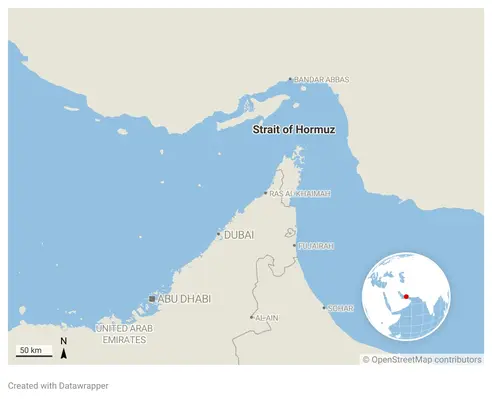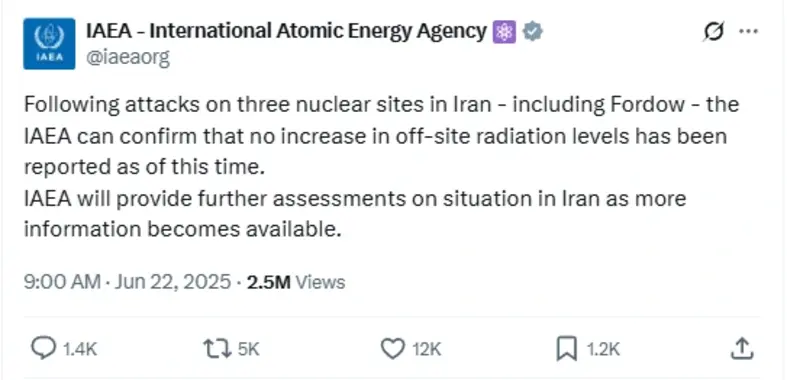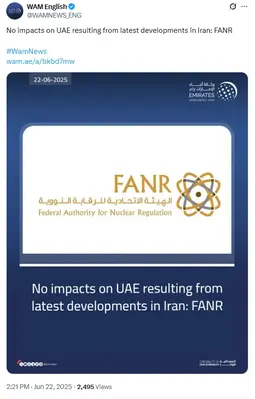A number of top executives from the oil and gas industry have addressed the impact of the recent strikes conducted by Israel on Iranian territory, which was followed by a number of retaliatory strikes from Iran.
Shell CEO Wael Sawan spoke to CNBC a few weeks ago, stating that “The last 96 hours have been very concerning … both for the region but more broadly in terms of where the global energy system is going given the uncertainty and the backdrop that we see right now and the geopolitical volatility.”
Patrick Pouyanné, CEO of TotalEnergies expressed concerns about the safety of regional employees and the broader implications for global markets if oil installations are targeted. He noted TotalEnergies' significant operations in Iraq, Abu Dhabi, Qatar, and Saudi Arabia, emphasising the hope that further strikes would avoid oil infrastructure to prevent safety hazards and market disruptions.
Meanwhile, Amjad Bseisu, CEO of UK-based EnQuest, hoped that the conflict would be resolved quickly.
“It’s almost like every day we see something different but obviously this war between Israel and Iran is another step up,” Bseisu told CNBC.
“The quicker we can come to an end of this terrible conflict, the better for overall markets but I do think that the market is well supplied in the short to medium term.”
More recently though, it seems that companies are still measuring the impact of US involvement in the conflict.
Following the US strikes on Iranian nuclear facilities on 22 June, comments from oil and gas company executives specifically addressing these strikes have been rather limited.
However, some relevant statements and industry perspectives have emerged, focusing on the broader implications for energy markets and supply chains.
According to Jorge Leon, head of geopolitical analysis at Rystad Energy and a former OPEC official, "An oil price jump is expected."
Speaking to Reuters, Leon said that "Even in the absence of immediate retaliation, markets are likely to price in a higher geopolitical risk premium."
SEB analyst Ole Hvalbye told Reuters that global oil benchmark Brent crude could gain US$3 to US$5 per barrel when markets open. Ole Hansen, analyst at Saxo Bank, predicted a similar jump, placing crude’s opening at US$4 to $5 dollars higher.
A more worrying aspect is the closure of the Strait of Hormuz (SoH). After the US strikes, Iran’s parliament voted to close this shipping route, which could severely affect the global oil and gas supply.
The SoH is the world’s most important oil chokepoint, handling about 20-30% of global seaborne oil trade (roughly 20 million barrels per day flow through this narrow strip).
Meanwhile, approximately 25% of the world’s LNG exports pass through this strait, majority of which is exported by Qatar.
Reuters reported that QatarEnergy had held talks with major energy companies last week. The report said that Saad Al Kaabi, who is QatarEnergy's CEO and Qatar's energy minister, urged companies to warn their respective governments (US and European countries) about this risk. These talks came after Israel struck an Iranian gas field, which it shares with Qatar.
GCC states monitoring the situation
Iranian officials, for their part, have assured that no radioactive matter was leaked following the US strikes, and that the region is safe from nuclear radiation.
The Saudi Nuclear and Radiological Regulatory Commission (NRRC) confirmed this, stating that no radiological effects were detected in Saudi Arabia or other GCC countries.
The UAE’s nuclear authority Federal Authority for Nuclear Regulation (FANR), along with the IAEA, Kuwait's nuclear authority, and the General Secretariat of the Gulf Cooperation Council, all published similar statements.
Qatar’s foreign ministry spokesman Majed al-Ansari told a news conference, "We are monitoring this on a daily basis."










